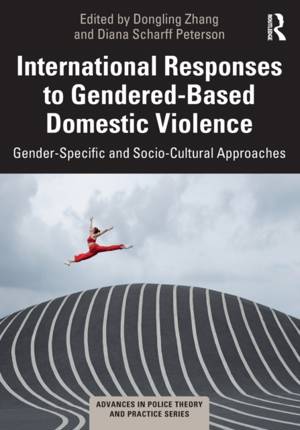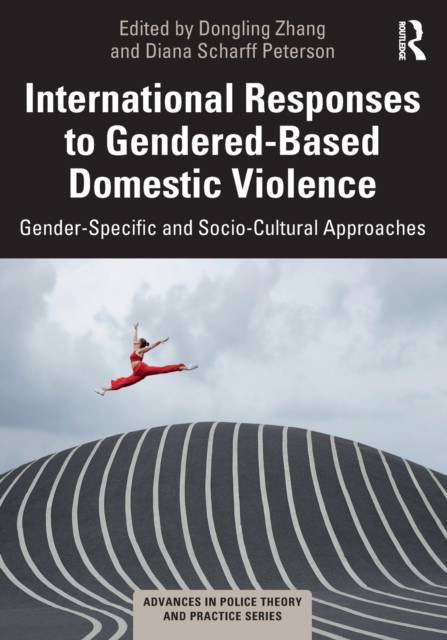
- Retrait gratuit dans votre magasin Club
- 7.000.000 titres dans notre catalogue
- Payer en toute sécurité
- Toujours un magasin près de chez vous
- Retrait gratuit dans votre magasin Club
- 7.000.0000 titres dans notre catalogue
- Payer en toute sécurité
- Toujours un magasin près de chez vous
International Responses to Gendered-Based Domestic Violence
Gender-Specific and Socio-Cultural Approaches
Description
This edited volume represents a joint effort by international experts to analyze the prevalence and nature of gender-based domestic violence across the globe and how it is dealt with at both national and international levels. With studies being conducted in 20 different countries and 4 distinct regions, the contributors to this volume shed light on the ways in which contextual particularities shape the practices and strategies of addressing the socio-cultural and legal problem of gender-based domestic violence in the countries or regions where they do research. Special attention is devoted to developing countries where there is a lack of a consistent legal definition of gender-based domestic violence and where violence against women is widely considered a private matter. The authors of the chapters share a common goal of raising public awareness of the significance in nuanced local experiences of women and other individuals from gender and sexual minority groups facing gender-based violence.
Furthermore, the authors attend, analytically, to the newly emerging, overlapping influences of COVID-19 and global warming. Their research findings acknowledge and provide a detailed account of how the two ecological and socio-economic crises can combine to produce economic devastation, disconnect victims from necessary social services and assistance, and create a large degree of panic and uncertainty. In addition, they intend to offer insights into next steps to not only adjust existing public policies, legislation, and social services to the ever-changing national and global contexts, but also to make new ones.
The book is intended for a wide range of scholars (both professors and students) and practitioners in a large number of areas, including but not limited to criminal justice, criminology, law, human rights, social justice, social work, nursing, sociology, and political or public affairs.
Spécifications
Parties prenantes
- Editeur:
Contenu
- Nombre de pages :
- 290
- Langue:
- Anglais
- Collection :
Caractéristiques
- EAN:
- 9781032205304
- Date de parution :
- 23-03-23
- Format:
- Livre broché
- Format numérique:
- Trade paperback (VS)
- Dimensions :
- 178 mm x 254 mm
- Poids :
- 553 g

Les avis
Nous publions uniquement les avis qui respectent les conditions requises. Consultez nos conditions pour les avis.





